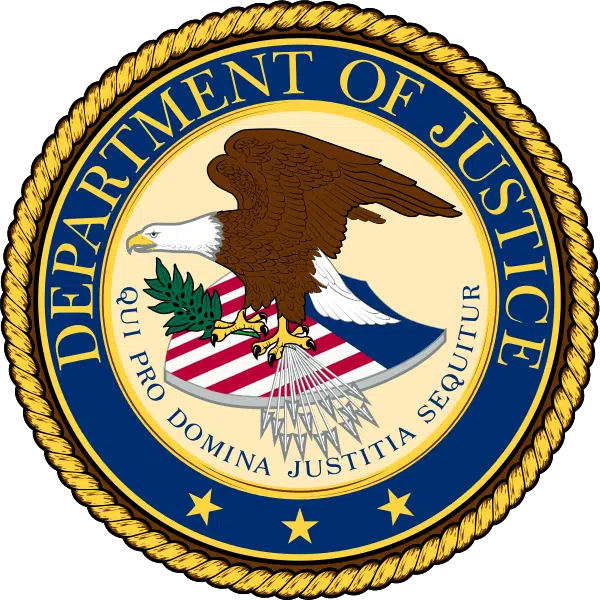Nigerian national sentenced to 6 years imprisonment in US for $143K mail fraud scheme and impersonation of property owners
In a case that reflects the growing concern over international fraud schemes targeting U.S. citizens and institutions, a Nigerian national, Uwa Nosakhare, has been sentenced to six years in a federal prison in the United States. The sentencing was announced on April 7, 2025, by the U.S. Department of Justice following Nosakhare’s guilty plea in January to charges of mail fraud and aggravated identity theft. This case centered around the fraudulent sale of vacant lot properties in Palm Beach County, Florida, using forged documents and stolen identities.
Between April 2022 and April 2023, Nosakhare, aged 26, and others involved in the scheme posed as legitimate property owners and attempted to fraudulently sell multiple plots of land. They used stolen personal identifiable information (PII) to impersonate property owners and created counterfeit documentation, including fake driver’s licenses, forged notary seals, fraudulent bank statements, and property ownership papers. These documents were then used to negotiate and complete property sales without the knowledge or consent of the real owners.
YOU MAY READ
Soludo-endorsed Local Govt. Chairman arrested in US for $3.3 million internet fraud
After successful transactions, the unsuspecting buyers were instructed to transfer the funds to bank accounts controlled by Nosakhare and his co-conspirators. The scheme caused financial damages totaling approximately $143,000, and investigators believe the full extent of attempted losses may have been higher had law enforcement not intervened in time.
Nosakhare’s fraudulent activities were brought to light following complaints from would-be property buyers and discrepancies uncovered during title verification processes. This prompted a multi-agency investigation led by the Federal Bureau of Investigation (FBI), Homeland Security Investigations (HSI), the Palm Beach County Sheriff’s Office (PBSO), and the Boca Raton Police Department.
The collaborative investigation ultimately linked the fraudulent transactions back to Nosakhare. Law enforcement officials found that he had been orchestrating these scams remotely, coordinating with accomplices and exploiting weaknesses in the digital real estate transaction process.
YOU MAY READ
Enugu High Court Sentences Federal Hospital Directors To Prison For Contempt
Upon his arrest, federal prosecutors presented a strong case that highlighted the meticulous nature of the fraud. The counterfeit documents used in the scheme were of such high quality that even experienced real estate professionals initially failed to detect anything amiss. This raised concerns within the industry about how vulnerable online transactions remain in the face of increasingly sophisticated cyber-enabled fraud.
During sentencing, U.S. Attorney Hayden P. O’Byrne for the Southern District of Florida emphasized that this case is part of a broader crackdown on cross-border fraud and identity theft.
“This sentence should serve as a warning to fraudsters across the globe that we will not tolerate the exploitation of our financial systems,” said O’Byrne. “This case demonstrates the importance of international cooperation and modern investigative techniques to bring criminals to justice.”
Acting Special Agent in Charge Brett Skiles of the FBI’s Miami Field Office said, “This is a victory not only for the victims but for the integrity of our real estate and banking systems. Identity theft and fraud cause deep financial and emotional harm to victims, and we are committed to pursuing those who engage in such crimes—regardless of where they operate from.”
Acting Special Agent in Charge José R. Figueroa of Homeland Security Investigations Miami added, “HSI continues to focus on individuals and organizations who commit fraud by exploiting U.S. systems and institutions. Fraud schemes like this are increasingly transnational in nature and require a coordinated response.”
YOU MAY READ
Court Sentences UNIUYO Professor to Three Years Imprisonment for Electoral Fraud: A Deep Dive into the Case, Legal Ramifications, and Wider Implications
Nosakhare, who faced a maximum sentence of up to 20 years for mail fraud and a mandatory minimum of two years for aggravated identity theft, received a combined sentence of six years following a plea agreement. His prison term will be followed by supervised release, and additional legal proceedings regarding the forfeiture of assets connected to the fraud are ongoing. Assistant U.S. Attorney Emily Stone is handling the asset forfeiture phase of the case.
Court documents revealed that Nosakhare’s network used a variety of digital tools and anonymizing services to conduct transactions, making it difficult for authorities to trace their operations initially. Investigators reportedly recovered evidence from encrypted messaging platforms, emails, and international bank transactions. The case serves as a stark reminder of how technology, when misused, can facilitate crime across borders.
This incident is not isolated. Law enforcement officials have expressed growing concerns about similar schemes being carried out by international fraud rings, many of which operate in or are connected to Nigeria, South Africa, and Eastern Europe. These networks often specialize in cyber-enabled crimes such as business email compromise (BEC), romance scams, inheritance fraud, and real estate scams.
In recent years, U.S. authorities have increased collaboration with international law enforcement agencies, especially the Economic and Financial Crimes Commission (EFCC) of Nigeria, to address cyber fraud and identity theft. Extraditions of Nigerian nationals linked to U.S.-based fraud schemes have become more frequent, following bilateral agreements and enhanced legal cooperation protocols.
YOU MAY READ
Texa influencer sentenced to 10 years for murder
Earlier this year, another Nigerian national, Okechukwu Josiah Odunna, was extradited to the U.S. in connection with a multimillion-dollar mortgage fraud scheme. Similarly, Okezie Bonaventure Ogbata pleaded guilty in January 2025 to operating a transnational inheritance fraud scheme that defrauded more than 400 elderly victims across the United States out of over $6 million. Authorities believe these schemes are often interconnected through loosely structured but well-organized criminal syndicates.
The financial impact of such fraud is significant. In 2024 alone, the FBI’s Internet Crime Complaint Center (IC3) received over 40,000 complaints relating to real estate and rental scams, with reported losses exceeding $350 million. Identity theft and wire fraud continue to top the list of consumer complaints received by the Federal Trade Commission (FTC), with seniors being disproportionately affected due to targeted scams that exploit vulnerability and trust.
Real estate professionals, banks, and title companies are being urged to implement stricter verification protocols, including in-person identity verification and real-time document authentication technologies. Some firms have started adopting artificial intelligence-powered tools to detect anomalies in paperwork or to flag potential fraud risks before transactions are finalized.
Meanwhile, cybersecurity experts warn that more must be done at the policy level to safeguard consumers. Recommendations include enhancing awareness campaigns, tightening regulations around digital real estate transactions, and promoting international partnerships to trace and shut down foreign-based fraud cells.
YOU
The case of Uwa Nosakhare has ignited conversations across the real estate and legal sectors regarding how to prevent similar incidents in the future. While the swift and coordinated response from U.S. authorities has been commended, the incident also exposed systemic gaps that criminals are quick to exploit.
For the victims who were defrauded—some of whom had invested their life savings in what they believed were legitimate property deals—the emotional and financial toll cannot be overstated. Although federal restitution procedures are underway, there is no guarantee that the full amount lost will be recovered.
In court, several victims provided impact statements describing the stress, anxiety, and sense of violation they felt after discovering they had been duped. Some were left scrambling to secure housing or refinance their financial positions, while others expressed frustration at how easily forged documents could pass initial scrutiny.
As Nosakhare begins his prison term, authorities stress that the fight against financial fraud is far from over. They are urging the public to remain cautious, report suspicious activity, and verify all aspects of any significant financial transaction—especially those involving real estate. Professionals in the sector are also encouraged to undergo fraud detection training and to incorporate more robust due diligence practices.
The message from this case is clear: technological advancements that make life easier can also be weaponized by those with malicious intent. But when law enforcement, legal institutions, and the public work together, it becomes possible to track, expose, and prosecute even the most elaborate and international fraud schemes.
For further updates on related cases and financial fraud prevention strategies, readers are encouraged to follow ongoing reports and advisories from the FBI, the Department of Justice, and state regulatory authorities.
Source: LIB





